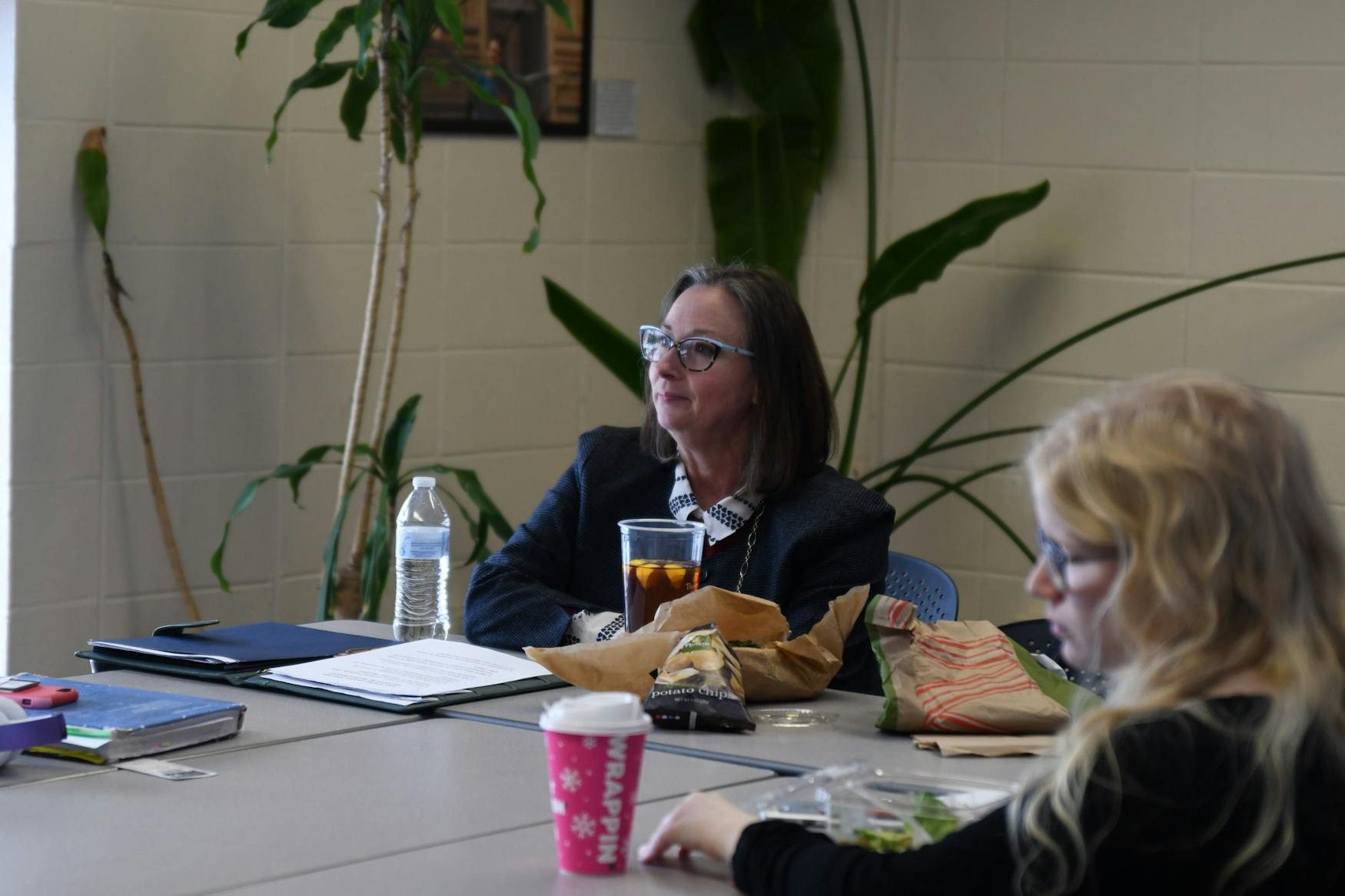SAS director finalists address student accessibility concerns
The three finalists for the new director of Student Accessibility Support held forums where they answered questions.
Academic Services held meet and greets for three finalists in the University’s search for a new director of Student Accessibility Support. The first meeting was with Christopher “Chip” Kennedy on Nov. 26, the second was with Andrea Vassar on Dec. 4 and the third was with Catherine Dugan on Dec. 9.
Kennedy, the first of three potential directors of Student Accessibility Services, answered questions from the Brandeis community on Nov. 26. Kennedy has worked in higher education and disability services for 20 years.
Kennedy said that he would work with all of the different departments “to take on that leadership role to make sure that … a full and thorough process occurs to make sure that a student’s voice is being heard and that all possible options are being explored before decisions are made.”
Kennedy added that he would want to work with an outside company to assess the physical campus to see what changes need to be made to increase the accessibility of the physical campus.
One student brought up the issue that some students are not able to get the necessary evaluations to get the assistance they need, often for financial reasons. Kennedy said that he would look into creating a fund for students who need evaluations.
Kennedy said he wants to address student needs by emphasizing student reporting and one-on-one discussions with students to discuss their struggles and how to best address the students’ needs. Kennedy said that while this would be a preferred method of determining student accommodations, documentation — such as medical evaluations — in some cases would still be necessary.
Some students questioned how Kennedy would combat any pushback he might receive in trying to achieve those goals. Kennedy emphasized that there is a need for institutional changes in attitude and culture, along with training, if needed, to explain the need for accommodations.
Vassar, the second finalist, is currently the American Disabilities Act/504 Coordinator at Washington College in Chestertown, MD. Shoshi Finkel ’20, an undergraduate fellow of disability policy at the Lurie Institute for Disability Policy, led the meeting with prepared questions for Vassar.
Finkel asked how Vassar would get to know Brandeis students to understand their individual needs regarding accessibility. Vassar pointed out that it was difficult for her to answer the question without first understanding more about the activism surrounding accessibility on campus that she had heard about. “No one’s directly come out and talked to me about the student activism. It’s been alluded to,” she said.
Otherwise, Vassar said she would get to know students through hosted open houses and town hall meetings. She also said she wants to go to where students are, rather than making them come to her. “Is there a student center where I can go so that they’re not having to come to my office, which may be intimidating to some people?” she asked.
Elijah Harrison ’21 asked Vassar how she would handle situations similar to one he had personally encountered in which a professor did not comply with accommodations laid out in a letter from the SAS office. “We need to make sure that people that are higher up in the administration … understands that there has to be authority in this,” Vassar said.
Vassar explained that although she is confident she can change the culture within the SAS office quickly, she predicted it will take longer to do so among Brandeis faculty. “The culture would have to shift so that they understand that … accessibility services is a piece of the institution,” she said. She continued, “When the office grants an accommodation … that is an approved accommodation and people have to comply with that.”
Vassar also discussed other challenges within disability services. She explained that students are often expected to provide medical documentation to qualify their disability, but sometimes getting that documentation can be costly.
Vassar also talked about the importance of coming up with different ways to accommodate people’s varying abilities and needs. “Accommodations are not prescribed. It’s a conversation,” she said.
The third finalist, Dugan, the director of the Department of Disability Access and Advising at Indiana University of Pennsylvania, spoke with the community in a forum on Monday.
According to Dugan’s LinkedIn profile, at IUP she coordinates “all aspects of disability access, advising, awareness and support” and directs “department strategic planning, assessment and program management.”
At the forum, Dugan explained the importance of meeting with students one-on-one to help in the transition from high school to college. She said that these meetings may involve conversations about how disability can be integrated into a student’s identity.
Dugan also talked about making career development a part of disability services, as well as ensuring that study abroad programs are equally accessible to all students.
Finkel asked how Dugan would balance the needs of students with the constraints of an institution. She replied, “I work for both. I can’t be here without the university, I can’t be here without the students.”
Another student at the forum asked Dugan what she would do if a professor refused to meet a student’s accommodations for their disability. Dugan said she would first email the professor explaining the procedure, but if needed, she said, “I have been known to go to the chair [of the professor’s department].” She continued, “The goal is … to do the right thing and tell people what the right thing is.”
Dugan also discussed inclusion in relation to disability. She explained that changing the culture to “stop defining what is, in quotes, normal and usual,” while difficult, is an important goal in her work.




Please note All comments are eligible for publication in The Justice.